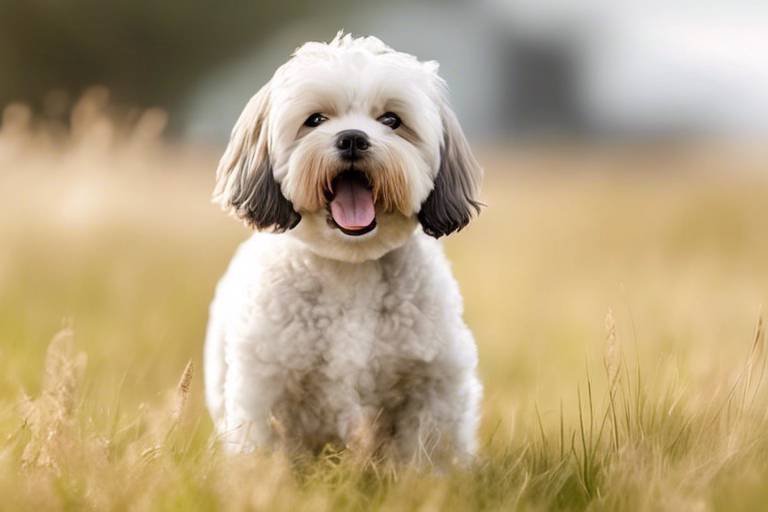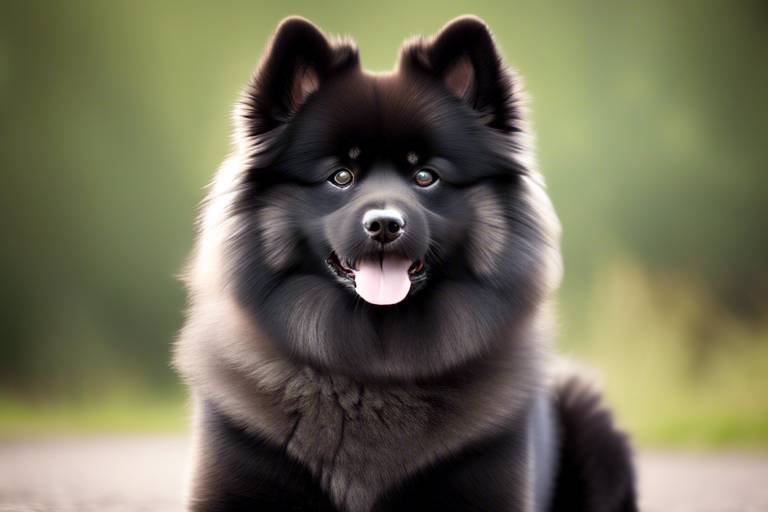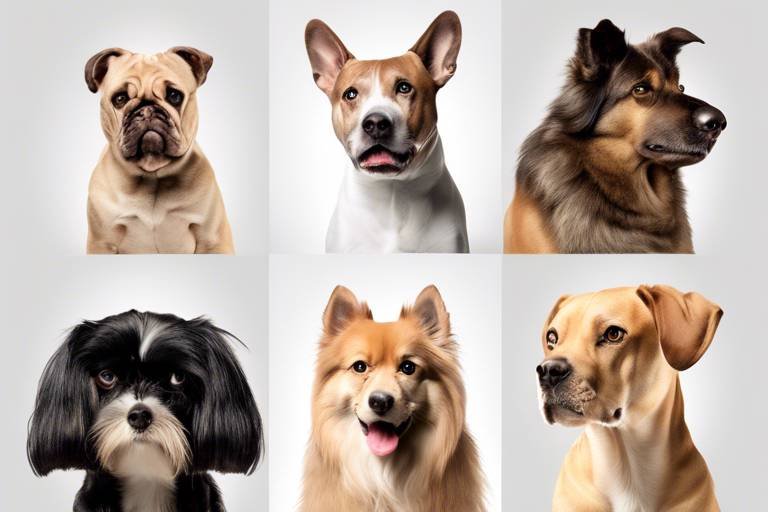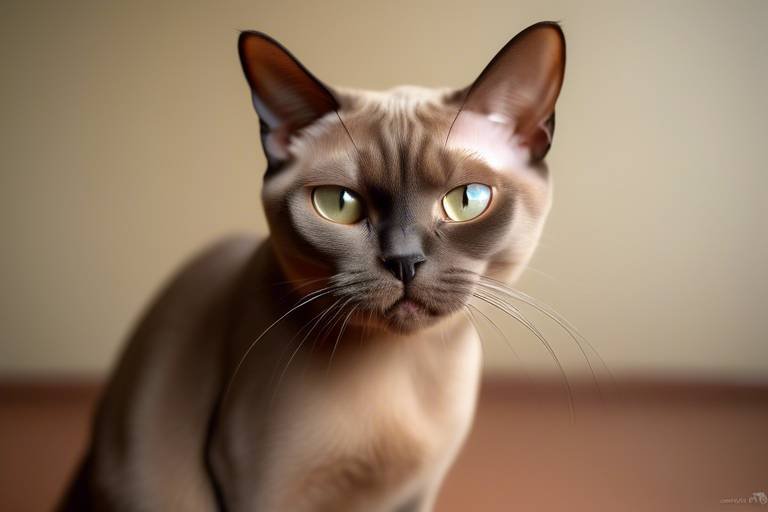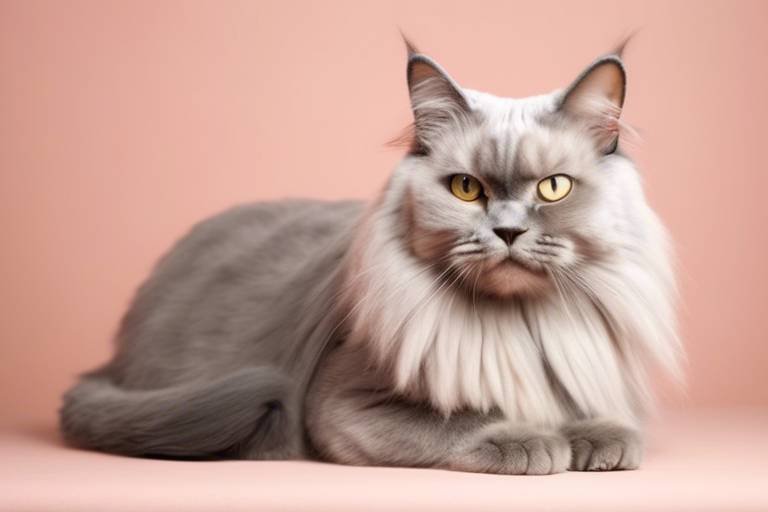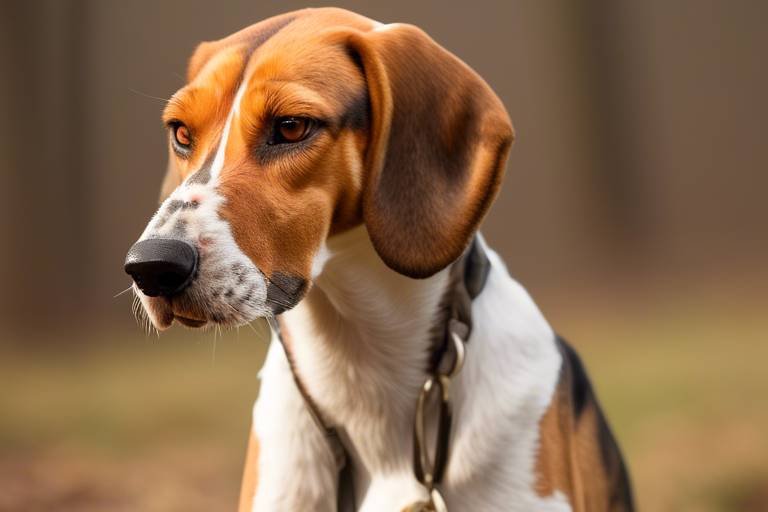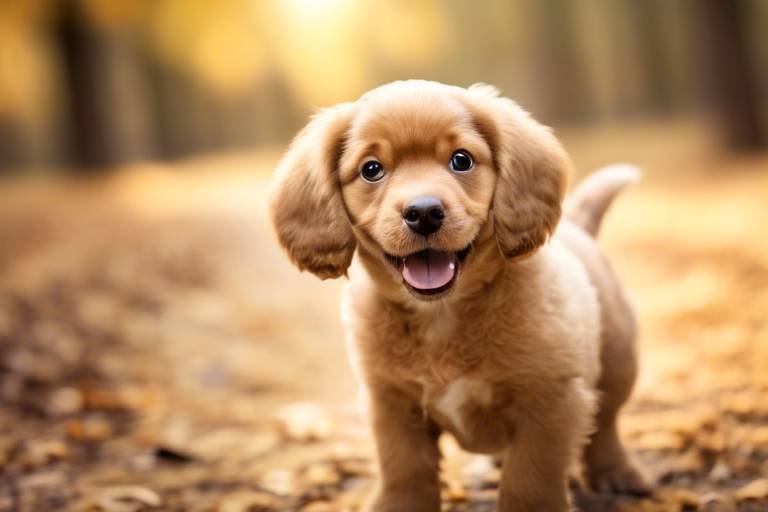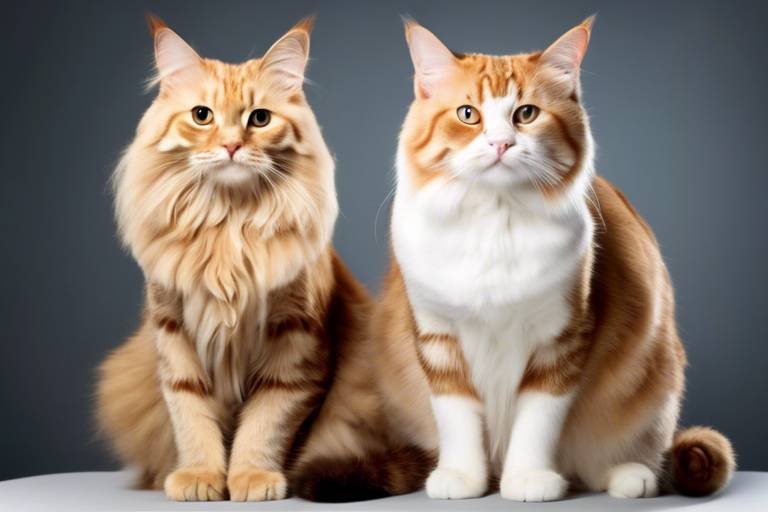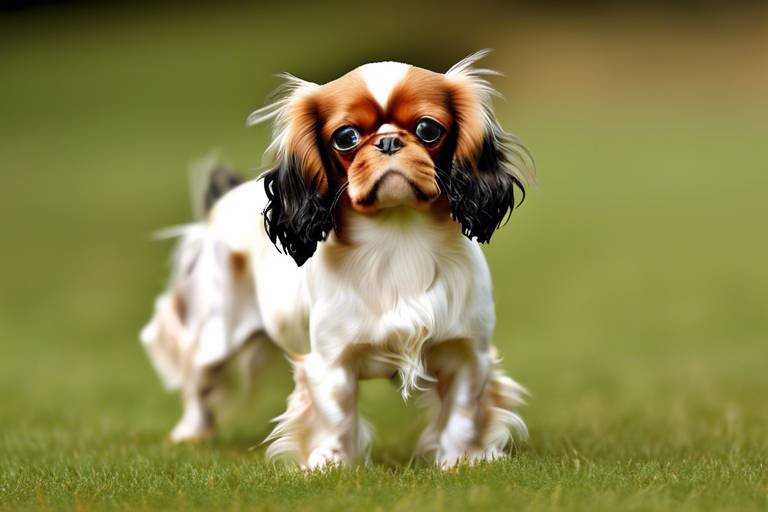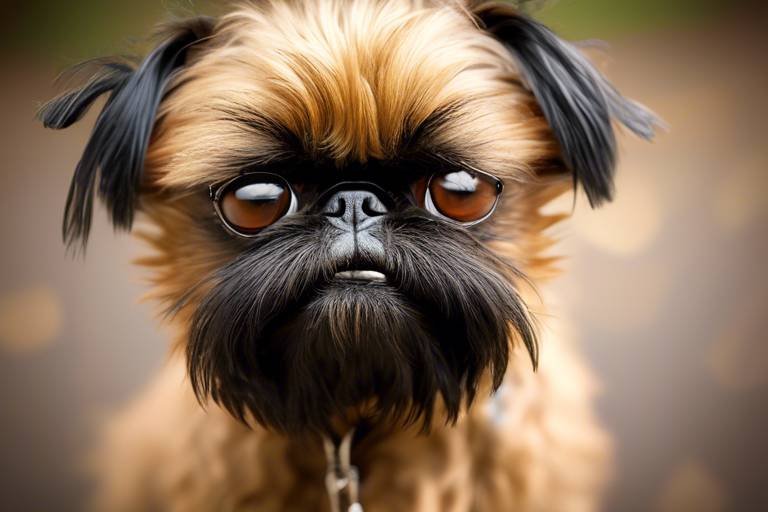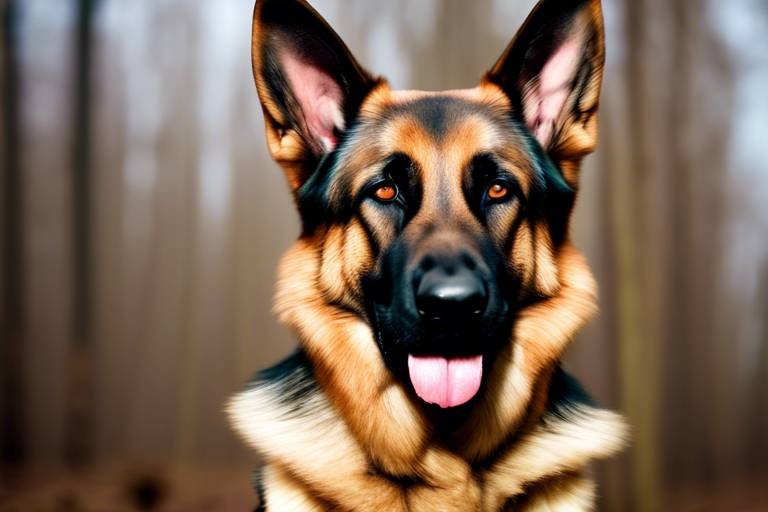The Unique Features of the Munchkin
The Munchkin cat breed is nothing short of a delightful surprise in the feline world. With their distinctive short legs and playful personalities, these cats have captured the hearts of many cat enthusiasts. Originating from a genetic mutation, their short stature not only adds to their charm but also makes them easily recognizable among other breeds. Imagine a cat that looks like a plush toy, with a body that’s just begging to be cuddled! Munchkins come in various colors and patterns, which means each one is unique in its own right. Their appearance isn’t just about looks; it reflects their vibrant and joyful spirit.
As you delve deeper into the world of Munchkins, you'll discover that their physical traits are just the beginning. These cats are known for their affectionate nature and intelligent minds, making them excellent companions for families and individuals alike. Whether you're living alone or with a bustling family, a Munchkin can easily adapt and become a beloved member of your household. Their playful antics and loving demeanor will keep you entertained and engaged, creating a bond that’s hard to break. So, if you're considering adding a furry friend to your life, the Munchkin breed might just be the perfect fit!
In addition to their adorable looks and charming personalities, Munchkins also require specific care to thrive. Understanding their unique needs is crucial for any potential owner. From their dietary requirements to grooming habits, taking care of a Munchkin is a rewarding responsibility. This breed is not just about having a cute cat; it’s about nurturing a loving companion who will enrich your life in countless ways. So, let’s dive into the fascinating world of Munchkins and explore what makes them such a special breed!
- What is the average lifespan of a Munchkin cat? Munchkin cats typically live between 12 to 15 years, depending on their health and care.
- Are Munchkin cats prone to health issues? Yes, like any breed, Munchkins can have specific health concerns, but regular vet check-ups can help manage these.
- Do Munchkin cats get along with other pets? Generally, Munchkins are social and can get along well with other pets if properly introduced.
- What type of diet is best for Munchkin cats? A balanced diet rich in protein is ideal for Munchkins to maintain their health and energy levels.
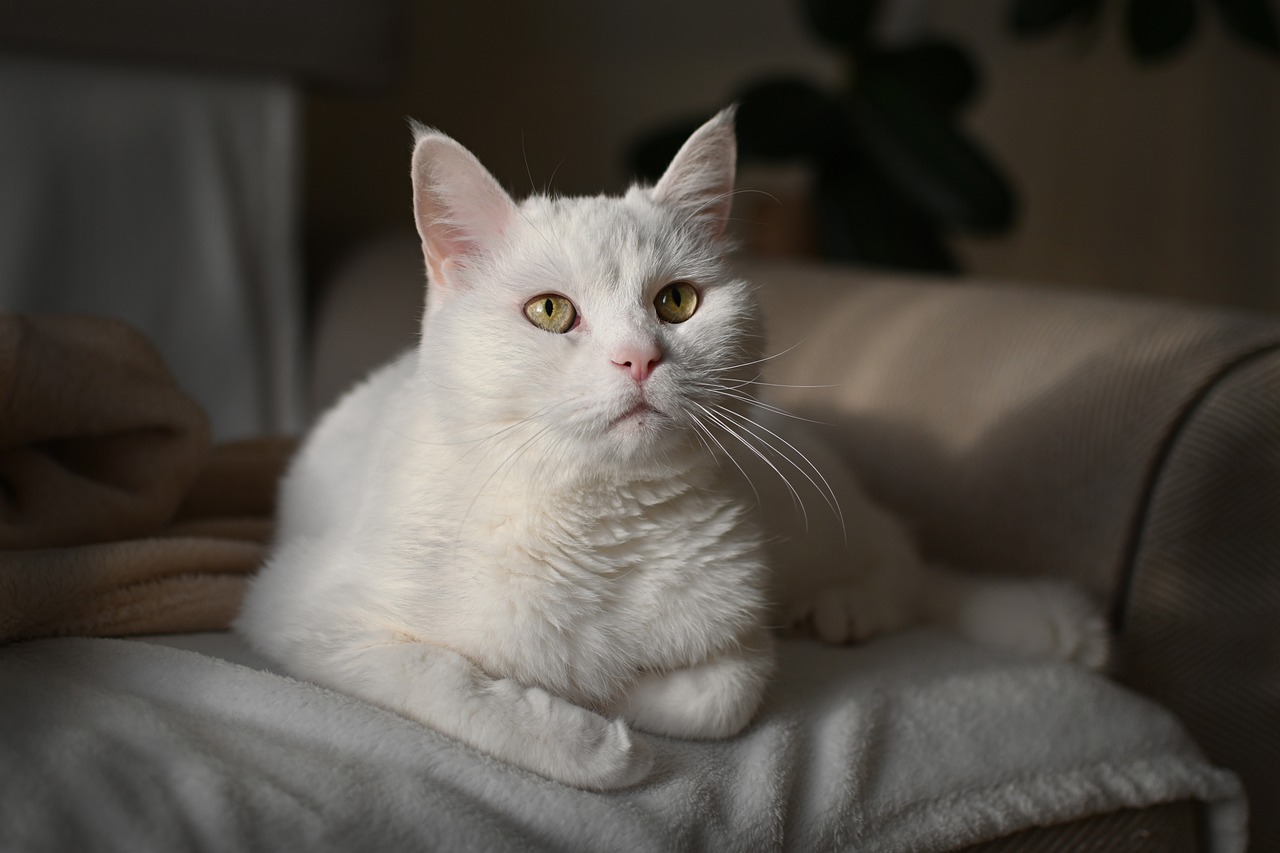
Physical Characteristics
Munchkin cats are truly a sight to behold, and their most distinctive feature is undoubtedly their short legs. This charming trait is a result of a genetic mutation that affects the growth of long bones, giving them that adorable, stubby-legged appearance. Imagine a feline that looks like it just hopped out of a cartoon—these cats are the epitome of cuteness! But their unique physique doesn't stop at their legs; Munchkins also have a well-proportioned body that is medium-sized, making them agile and playful despite their short stature.
In terms of coat variations, Munchkin cats come in a plethora of colors and patterns, ranging from solid hues to intricate tabbies. Their fur can be either short-haired or long-haired, which adds to their overall appeal. The short-haired variety boasts a sleek and shiny coat that requires minimal grooming, while the long-haired Munchkins might need a bit more upkeep to keep their fur looking fabulous. Regardless of their coat length, all Munchkins have a soft, plush texture that invites endless petting sessions!
To give you a clearer picture of their physical traits, here’s a quick comparison table:
| Feature | Description |
|---|---|
| Legs | Short and sturdy, a hallmark of the breed. |
| Body Size | Medium-sized, proportionate to their legs. |
| Coat Length | Available in short-haired and long-haired varieties. |
| Coat Colors | Wide range of colors and patterns, including solid, tabby, and more. |
Despite their unique appearance, Munchkin cats are not just about looks; they possess a lively and engaging personality that complements their physical traits. Their playful nature and affectionate demeanor make them not just pets, but true companions. If you’re considering adding a Munchkin to your family, be prepared for a delightful mix of charm and character!
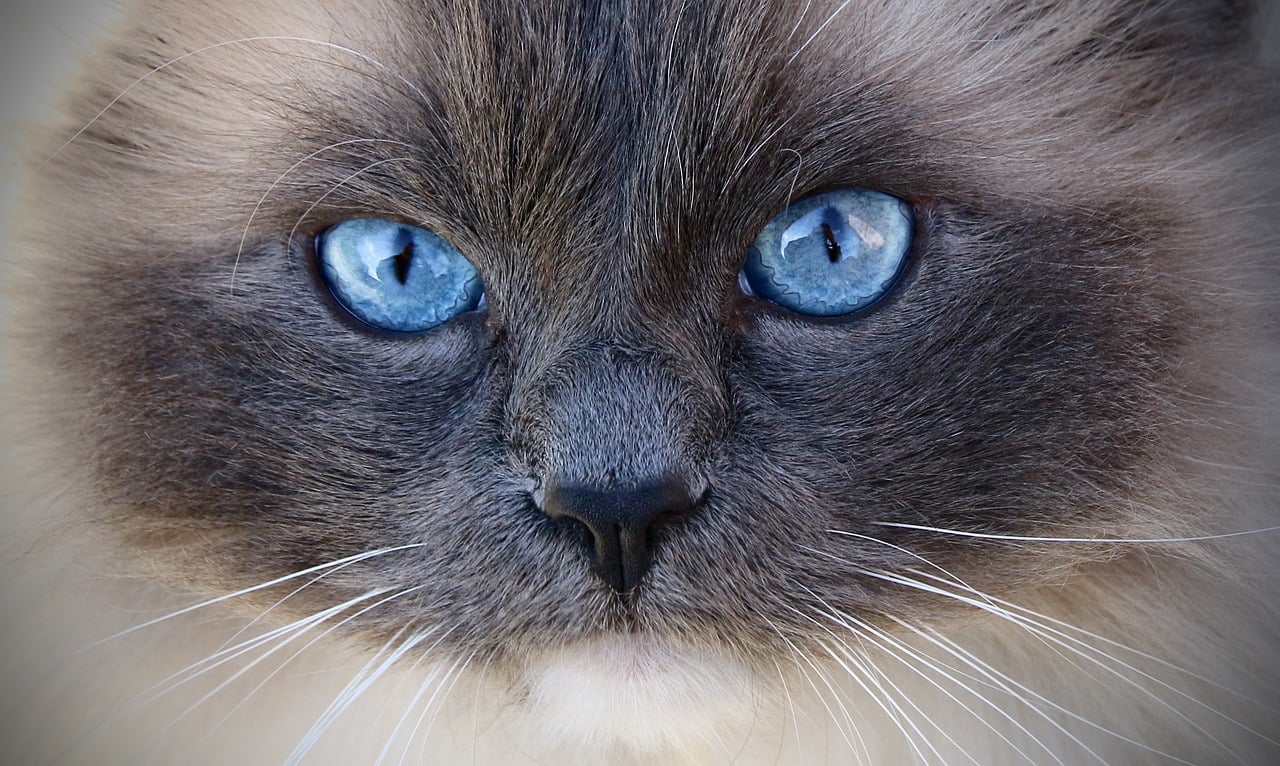
Personality Traits
The Munchkin cat breed is not just another pretty face; they come with a personality that is as distinctive as their short legs. These cats are celebrated for their playful and affectionate nature, making them beloved companions for many. If you’ve ever wondered what it’s like to have a Munchkin in your life, let me tell you, it’s a delightful experience! Their charming antics and loving demeanor can turn any dull day into a joyous occasion.
One of the standout features of Munchkin cats is their affectionate disposition. They tend to form strong bonds with their human companions, often following them around the house like little shadows. Imagine having a furry friend who greets you at the door, ready to snuggle up after a long day. This breed thrives on attention and is known to be quite the lap cat. In fact, if you’re looking for a cuddle buddy, the Munchkin might just be your best bet!
Munchkins have an innate ability to make their owners feel loved. They are not just cats; they are companions who bring warmth and joy into homes. Their affectionate nature makes them perfect for families with children or individuals seeking a loyal friend. You’ll often find them curling up next to you on the couch or nudging your hand for some gentle pets. It’s as if they have a sixth sense for when you need a little extra love!
Now, let’s talk about their playful side! Munchkin cats are known for their lively personalities. They possess a boundless energy that keeps them engaged in various activities. Whether it’s chasing after a feather toy, pouncing on a laser dot, or simply playing hide-and-seek, Munchkins have a knack for turning everyday moments into fun-filled adventures. They are the type of cats that will keep you entertained for hours, ensuring that there’s never a dull moment in your home.
Social interaction is key to a Munchkin’s happiness. These cats are not the type to sit in a corner and observe; they want to be part of the action! They thrive on companionship, often forming strong relationships with both humans and other pets. Their playful and affectionate nature encourages them to engage in social play, which can be a great way to strengthen bonds. You might find them grooming their fellow pets or playfully batting at a sibling’s tail. Their social skills are impressive, making them a joy to have around!
Not only are Munchkins playful and affectionate, but they are also surprisingly intelligent. These cats are quick learners and can pick up tricks and commands with ease. Training a Munchkin can be a rewarding experience, as they enjoy the mental stimulation that comes with learning. Imagine teaching your Munchkin to fetch or even to sit on command! Their eagerness to please and playful attitude make them a delight to train. Plus, it’s an excellent way to bond with your furry friend!
- Do Munchkin cats get along with other pets? Yes! Munchkin cats are social and often form strong bonds with other pets, making them great companions.
- Are Munchkin cats playful? Absolutely! Their playful nature means they enjoy engaging in various activities and games.
- How intelligent are Munchkin cats? Munchkins are quite intelligent and can learn tricks and commands easily.
- Do they require special care? While they have unique physical traits, their care needs are similar to other cat breeds.
Affectionate Companions
Munchkin cats are not just pets; they are that bring warmth and joy to any household. Their loving disposition makes them perfect for families, singles, and everyone in between. Imagine coming home after a long day, and there they are, waiting at the door, their little legs bouncing with excitement. Doesn’t that sound delightful? These cats have an innate ability to sense your mood and will often snuggle close when you need it the most, providing comfort like a warm blanket on a chilly night.
One of the most charming aspects of Munchkins is their unconditional love. They thrive on human interaction and are known to follow their owners around the house, eager to be part of whatever you are doing. Whether it's lounging on the couch while you binge-watch your favorite series or sitting beside you while you work, they are content just to be near you. This bond often grows stronger over time, as Munchkins are highly social animals that develop deep connections with their humans.
In addition to their affectionate nature, Munchkins are also playful and curious. They love to explore their surroundings and will often engage in playful antics that can leave you in stitches. Their playful spirit can be a source of entertainment for everyone in the family. You might find them chasing after a feather toy or pouncing on a laser dot with the enthusiasm of a kitten, despite their adult size. This playfulness not only keeps them physically active but also strengthens the bond they share with their owners.
When it comes to showing affection, Munchkin cats have their own unique ways. They may nuzzle against you, purr loudly when cuddled, or even gently knead your lap with their paws, a behavior reminiscent of kittenhood. This kneading action is not just cute; it’s a sign of contentment and trust. You might even notice them bringing you their favorite toy as a way of sharing their joy with you. It’s their little way of saying, “Look what I found! Isn’t it great?”
For those considering adding a Munchkin to their family, it’s important to remember that their affectionate nature requires commitment and attention. They thrive in environments where they receive plenty of love and interaction. Leaving them alone for extended periods can lead to feelings of loneliness, which may result in behavioral issues. Therefore, it's important to ensure that they have companionship, whether it’s from humans or other pets. If you’re thinking about adopting a Munchkin, be prepared to shower them with love and attention, and they will undoubtedly return it tenfold!
- Do Munchkin cats get along with other pets? Yes, Munchkin cats are generally friendly and can coexist well with other pets, given proper introductions.
- How much exercise do Munchkin cats need? While they are playful, Munchkin cats do not require extensive exercise. Regular playtime and interactive toys are usually sufficient.
- Are Munchkin cats prone to health issues? Like any breed, Munchkins can have specific health concerns, but with proper care and regular vet visits, they can lead healthy lives.
Playfulness
The playful nature of Munchkin cats is one of their most endearing traits, making them a delightful addition to any household. Imagine a little furball dashing around your living room, their short legs propelling them with surprising agility. These cats have a zest for life that is truly infectious. Their playful spirit is not just about chasing after toys; it’s a whole lifestyle! Munchkins thrive on interaction and love to engage in various activities that stimulate their minds and bodies.
One of the most charming aspects of a Munchkin's playfulness is how they approach their toys. They are known to have a favorite selection of playthings, which can range from feathered wands to simple balls of yarn. You might find your Munchkin pouncing on a crumpled piece of paper, treating it like a prized catch! Their curiosity drives them to explore every nook and cranny, turning even the most mundane objects into exciting playthings. This breed’s playful antics can keep you entertained for hours, as they leap, roll, and tumble with glee.
Moreover, Munchkins are social creatures that enjoy playtime with their human companions. They often seek out their owners to join in on the fun. Whether it's a game of hide and seek or a chase around the house, these cats love to involve their families in their playful escapades. It’s not uncommon to see a Munchkin bringing a toy to their owner, meowing insistently, as if to say, “Let’s play!” This interactive playtime not only strengthens the bond between the cat and their owner but also provides essential exercise for both parties.
To keep your Munchkin engaged, consider rotating their toys regularly. This simple act can reignite their interest and keep their playtime fresh and exciting. Here are some popular activities that Munchkin cats enjoy:
- Interactive Toys: Toys that require your involvement, like laser pointers or feather wands, can provide endless entertainment.
- Cat Trees: Munchkins love to climb and explore, so a sturdy cat tree can be a great source of fun.
- Hide and Seek: This classic game can be adapted for cats, encouraging them to use their natural hunting instincts.
In summary, the playfulness of Munchkin cats is a beautiful blend of energy, curiosity, and affection. Their unique ability to bring joy and laughter into the home makes them not just pets, but cherished family members. So, if you’re considering bringing a Munchkin into your life, be prepared for a whirlwind of playful adventures and heartwarming moments!
- Are Munchkin cats good with children? Yes, Munchkin cats are generally friendly and affectionate, making them great companions for families with children.
- Do Munchkin cats require special care? While they don’t require special care, regular grooming and a balanced diet are essential for their well-being.
- Can Munchkin cats jump high? Due to their short legs, Munchkins may not jump as high as other breeds, but they are surprisingly agile and can navigate their environment well.
Social Interaction
When it comes to Munchkin cats, social interaction is not just a preference; it’s a fundamental part of their personality. These little furballs thrive on companionship and are known for their affectionate nature. Unlike some breeds that may prefer solitude, Munchkins are social butterflies, always eager to engage with their human families and even other pets. Have you ever seen a cat that follows you from room to room, just to be near you? That’s a classic Munchkin move!
One of the most delightful aspects of Munchkin cats is their ability to form strong bonds with their owners. They often display behaviors that indicate their affection, such as curling up in your lap, purring contentedly, or even giving gentle headbutts. This breed is particularly good at reading human emotions, which means they can sense when you’re feeling down and may come to cuddle up to you, offering comfort in their own unique way.
In addition to their bond with humans, Munchkins are typically very social with other animals. They often get along well with dogs and other cats, making them wonderful additions to multi-pet households. Their playful demeanor encourages them to engage in games with their furry friends, whether it’s a friendly chase around the house or a playful wrestling match. This sociability is essential for their mental stimulation and overall happiness.
To help foster social interaction, it’s important to provide your Munchkin with opportunities to engage. Consider the following tips:
- Playtime: Regular interactive play sessions with toys like feather wands or laser pointers can help strengthen the bond between you and your Munchkin.
- Socialization: Introduce your Munchkin to new people and environments gradually, allowing them to explore at their own pace.
- Companionship: If possible, consider adopting another pet to keep your Munchkin company, as they thrive in the presence of others.
In essence, Munchkin cats are not just pets; they are companions that enrich our lives with their playful antics and affectionate interactions. Their social nature not only makes them delightful to have around but also ensures that they lead fulfilling lives filled with love and companionship. Remember, a happy Munchkin is a well-socialized Munchkin!
Q: Do Munchkin cats get along with other pets?
A: Yes! Munchkin cats are generally very sociable and can get along well with other pets, including dogs and other cats, especially if they are introduced properly.
Q: How can I help my Munchkin cat be more social?
A: Engaging in regular playtime, introducing them to new people, and considering a companion pet can help enhance their social skills.
Q: Are Munchkin cats affectionate?
A: Absolutely! Munchkin cats are known for their affectionate nature and often seek out human companionship.
Intelligence and Trainability
Munchkin cats are not just adorable with their short legs and charming personalities; they are also quite intelligent. This breed has a knack for learning and can pick up on tricks and commands faster than you might expect. Imagine trying to teach your Munchkin a new trick—it's like playing a game of fetch with a dog, but with a feline twist! Their curiosity and eagerness to engage with their owners make training sessions not only effective but also a lot of fun.
One of the most fascinating aspects of Munchkin cats is their ability to understand and respond to human cues. They often seem to know when you're calling them, and their playful nature means they're usually ready to join in on whatever activity you have in mind. Whether it's playing with a feather toy or learning to sit on command, Munchkins thrive on the interaction that training provides. Their intelligence allows them to adapt to various environments and situations, making them suitable companions for families, singles, and seniors alike.
When it comes to training methods, positive reinforcement is key. Munchkins respond best to rewards—be it treats, praise, or their favorite toys. Here are a few tips to keep in mind:
- Consistency is crucial: Use the same commands and rewards each time to help them learn faster.
- Short sessions work best: Keep training sessions brief and engaging to maintain their interest.
- Incorporate play: Use their playful nature to your advantage by turning training into a game.
Furthermore, Munchkin cats are known for their problem-solving abilities. They can figure out how to open doors or manipulate toys to get treats. This cleverness can sometimes lead to mischief, so it’s essential to provide them with plenty of stimulating toys and activities to keep their minds sharp. Think of it like giving a child a puzzle; it keeps them occupied and helps develop their cognitive skills.
In conclusion, Munchkin cats are not only delightful companions but also highly trainable pets. Their intelligence makes them a joy to train, and their affectionate nature ensures that the bond between you and your Munchkin will only grow stronger through these shared experiences. So, if you're considering adding a Munchkin to your family, be prepared for some fun training sessions that will showcase just how smart and engaging these little felines can be!
Here are some common questions about Munchkin cats and their intelligence:
- Are Munchkin cats easy to train? Yes, they are generally easy to train due to their intelligence and eagerness to please.
- What is the best way to train a Munchkin cat? Positive reinforcement works best—use treats, praise, and play to encourage learning.
- Can Munchkin cats learn tricks? Absolutely! With patience and consistency, they can learn a variety of tricks.
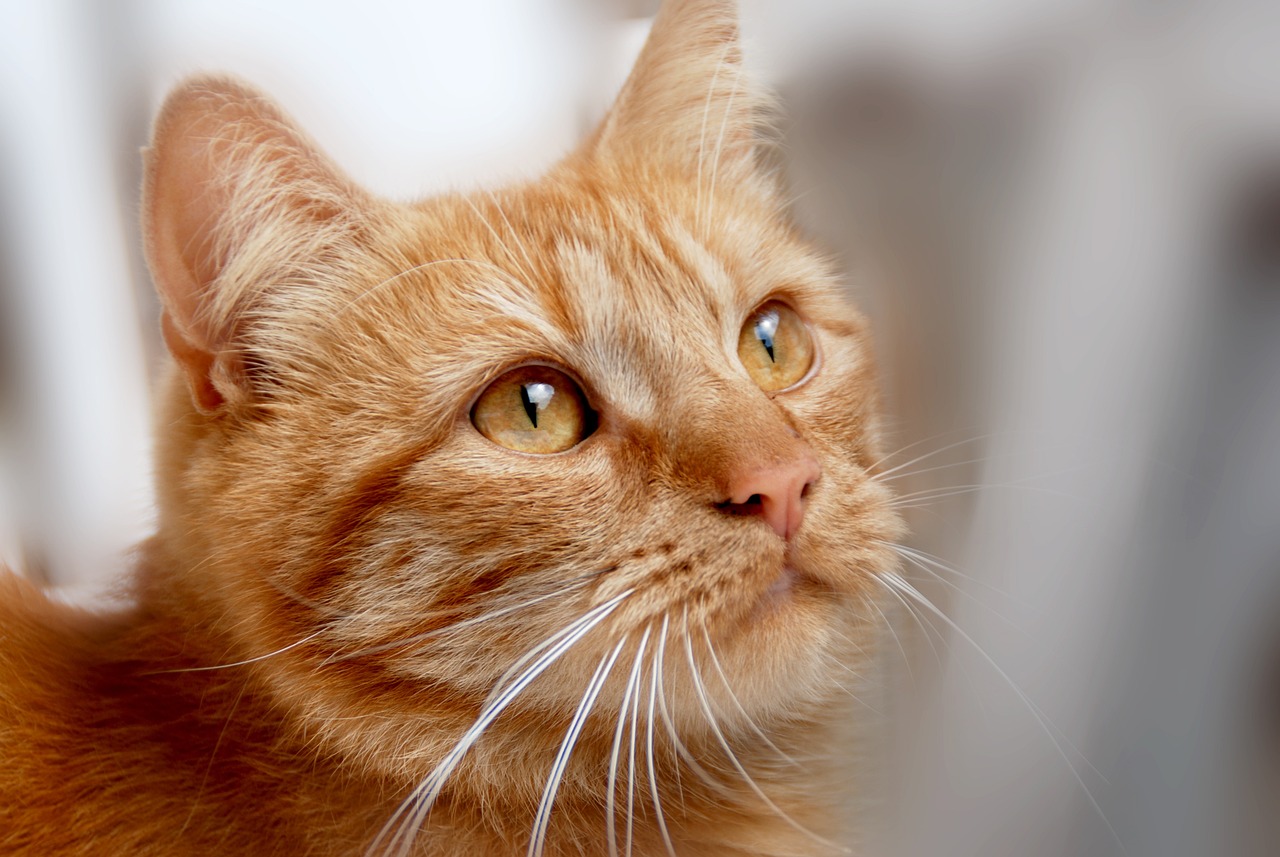
Care Requirements
Understanding the care needs of Munchkin cats is essential for their well-being and happiness. These adorable felines, with their unique short legs, require a bit of special attention to thrive. Just like any other pet, Munchkins need a balanced diet, regular grooming, and proactive health care to ensure they live a long and fulfilling life. It's not just about feeding them or giving them a scratch behind the ears; it's about creating an environment where they can flourish.
First and foremost, let's talk about dietary needs. A well-balanced diet is crucial for Munchkin cats to maintain their health and energy levels. Since they are prone to obesity due to their compact size, it's important to monitor their food intake closely. High-quality cat food that is rich in protein is essential, as Munchkins are active and playful. Look for options that contain real meat as the first ingredient and avoid fillers like corn and soy. You might consider feeding them a mix of dry and wet food to keep their hydration levels up while also adding variety to their meals. Here’s a quick overview of ideal food options:
| Food Type | Benefits |
|---|---|
| Dry Cat Food | Helps maintain dental health and is easy to store. |
| Wet Cat Food | Provides hydration and is often more palatable. |
| Raw Diet | Mimics natural hunting behavior and can be very nutritious. |
Next up is grooming. Regular grooming is essential to keep Munchkin cats looking their best and to prevent matting, especially for those with longer fur. Depending on their coat type, you might need to brush them several times a week. For Munchkins with short hair, a weekly brush should suffice, while those with longer hair may require daily attention. Use a gentle brush to avoid irritating their skin, and don’t forget to check their ears and trim their nails regularly. Grooming is not just a chore; it’s a bonding experience that can strengthen your relationship with your furry friend.
Health considerations are another critical aspect of Munchkin care. These cats can be susceptible to certain health issues, so regular veterinary check-ups are vital. You should schedule annual visits for vaccinations and routine health screenings. Keeping an eye on their weight is also crucial, as obesity can lead to other health complications. If you notice any changes in their behavior, appetite, or litter box habits, it’s always best to consult your vet. Remember, preventive care is the key to a long and happy life for your Munchkin.
In summary, caring for a Munchkin cat involves a blend of proper diet, grooming, and regular veterinary care. By paying attention to these needs, you can ensure that your feline companion remains healthy, happy, and full of life. So, are you ready to welcome a Munchkin into your home?
- What is the lifespan of a Munchkin cat? Munchkin cats typically live between 12 to 15 years, given proper care and a healthy lifestyle.
- Do Munchkin cats require special diets? Yes, due to their propensity for obesity, a high-protein, low-carb diet is recommended.
- How often should I groom my Munchkin? Depending on their coat length, you should groom them at least once a week for short-haired Munchkins and daily for long-haired ones.
- Are Munchkin cats good with children and other pets? Absolutely! They are known for their friendly and social nature, making them great companions for families and other animals.
Dietary Needs
When it comes to the of Munchkin cats, it's essential to understand that their unique physique and energetic personality require a well-balanced and nutritious diet. These adorable felines, with their short legs and playful demeanor, have specific nutritional requirements that help maintain their health and vitality. A diet rich in high-quality protein is crucial for Munchkins, as it supports their muscle development and overall energy levels. Just like humans, cats thrive on a variety of nutrients, including proteins, fats, carbohydrates, vitamins, and minerals.
One important aspect of their diet is ensuring they receive adequate hydration. Munchkins, like all cats, can be prone to urinary tract issues, so providing fresh water at all times is vital. Additionally, incorporating wet food into their diet can help increase their moisture intake. This is particularly beneficial for Munchkins, as they may not always drink enough water on their own. It's a bit like making sure your plant gets enough water; without it, they won't thrive!
Here’s a quick breakdown of the ideal dietary components for Munchkin cats:
| Nutrient | Importance | Sources |
|---|---|---|
| Protein | Supports muscle growth and energy | Chicken, turkey, fish, and high-quality cat food |
| Fats | Provides energy and supports skin health | Fish oil, chicken fat |
| Carbohydrates | Provides energy but should be limited | Whole grains, vegetables |
| Vitamins & Minerals | Supports overall health and immune function | Commercial cat food with added vitamins |
It's also worth noting that Munchkin cats can be somewhat sensitive to changes in their diet. Sudden shifts can lead to digestive issues, so it's best to introduce new foods gradually. Think of it like easing into a new exercise routine; you wouldn’t want to jump straight into a marathon without preparing your body first!
When selecting cat food, look for options that list a specific protein source as the first ingredient, and avoid those with excessive fillers or artificial additives. The right food not only keeps your Munchkin healthy but also contributes to their shiny coat and playful spirit. After all, a well-fed Munchkin is a happy Munchkin!
In summary, providing a balanced diet tailored to the Munchkin's unique needs is crucial for their overall health and happiness. Remember, a little attention to their dietary requirements goes a long way in ensuring that your furry friend lives a long and vibrant life!
- What should I feed my Munchkin cat? A balanced diet with high-quality protein, healthy fats, and limited carbohydrates is ideal.
- Can Munchkin cats eat dry food? Yes, but incorporating wet food can help with hydration and urinary health.
- How often should I feed my Munchkin? Most adult Munchkins do well with two meals a day, but consult your vet for personalized advice.
- Are there any foods I should avoid? Yes, avoid foods high in fillers, artificial additives, and certain human foods like chocolate and onions.
Grooming Tips
When it comes to grooming your Munchkin cat, there’s more to it than just keeping them looking adorable (though that’s a big part of it!). These little bundles of joy have unique grooming needs that cater to their short legs and playful nature. Regular grooming not only helps maintain their coats but also strengthens the bond between you and your furry friend. So, let's dive into some essential grooming tips that will keep your Munchkin looking fabulous and feeling great!
First off, brushing is key! Depending on the length and type of their coat, you might want to brush your Munchkin anywhere from once a week to several times a week. Short-haired Munchkins typically require less frequent brushing, while long-haired varieties benefit from more regular attention. A good brush will help remove loose hair and prevent matting, which can be a real issue for those with longer fur. Here’s a quick look at some grooming tools you might consider:
| Grooming Tool | Best For |
|---|---|
| Soft Bristle Brush | Short-haired Munchkins |
| Pin Brush | Long-haired Munchkins |
| Comb | Removing tangles and mats |
| Nail Clippers | Regular nail trimming |
Next, let’s talk about bathing. While Munchkins are generally good at keeping themselves clean, occasional baths can help keep their coats shiny and remove any dirt or odors. Aim to bathe your Munchkin every few months or as needed, using a gentle cat shampoo. Always ensure that the water is lukewarm and rinse thoroughly to avoid any residue that could irritate their skin. Remember, bathing should be a positive experience, so be sure to provide plenty of treats and cuddles!
Another important aspect of grooming is nail trimming. Munchkin cats, like all felines, need regular nail care to prevent overgrowth and potential injury. Aim to trim their nails every two to three weeks. If your Munchkin is new to nail trimming, take it slow. Start with just one or two nails at a time and reward them with treats to make it a pleasant experience.
Lastly, don’t forget about their ears and teeth. Regularly check your Munchkin's ears for dirt and wax buildup, and clean them gently with a damp cloth if needed. Dental health is equally important, so consider introducing a dental care routine that includes brushing their teeth with a cat-specific toothpaste. Healthy teeth and ears contribute to your Munchkin's overall well-being!
In summary, grooming your Munchkin cat is not just about aesthetics; it’s a vital part of their health and happiness. With the right tools and techniques, you can ensure that your little companion remains a vibrant and loving part of your family for years to come. Remember, the time you invest in grooming is time well spent, filled with opportunities for bonding and play!
- How often should I groom my Munchkin cat? It depends on their coat type. Short-haired Munchkins can be brushed once a week, while long-haired ones benefit from more frequent grooming.
- Can I bathe my Munchkin cat? Yes, occasional baths are fine. Use lukewarm water and a gentle cat shampoo, and make it a positive experience with treats!
- How do I trim my Munchkin's nails? Trim their nails every two to three weeks. Start slowly and reward them with treats to make it a pleasant experience.
- What should I use to clean my Munchkin's ears? Use a damp cloth to gently wipe their ears, checking for dirt or wax buildup.
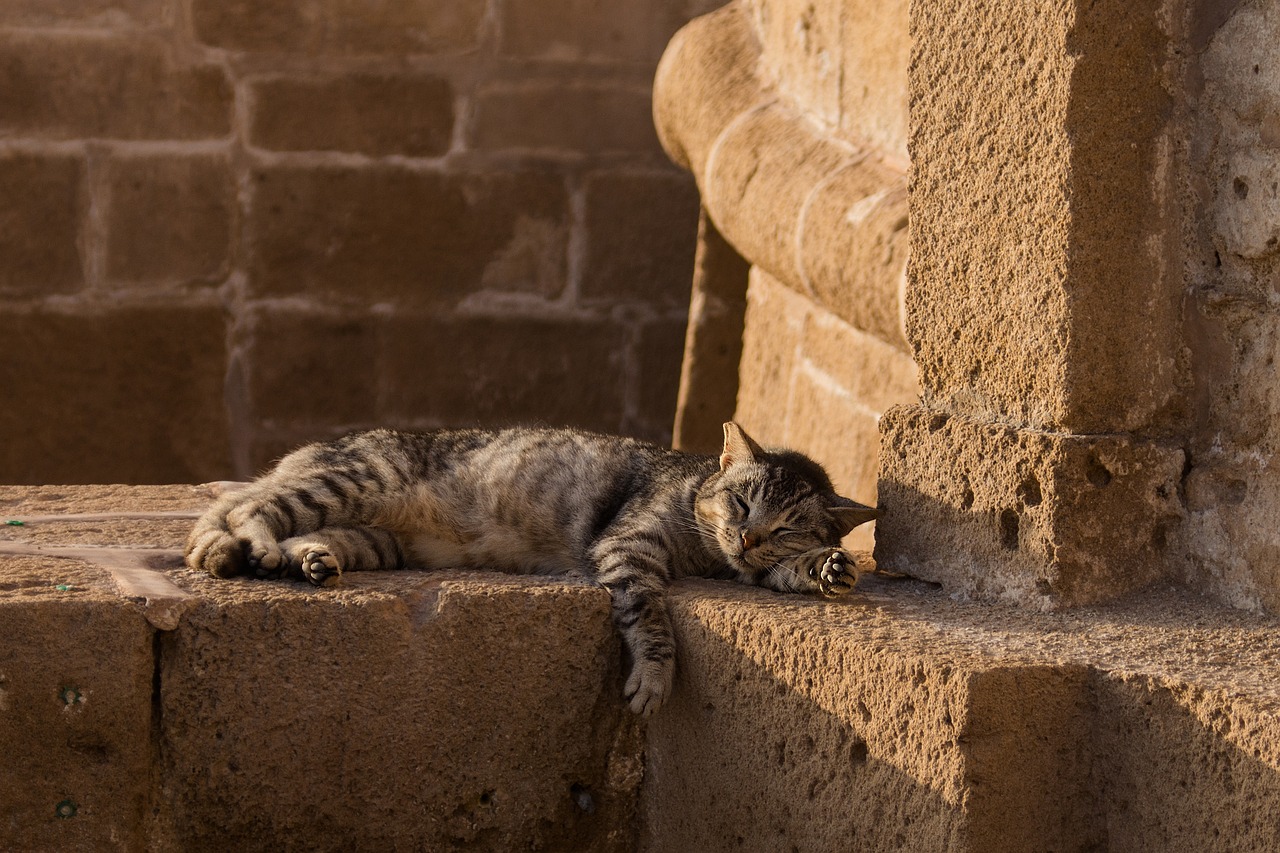
Health Considerations
When it comes to the health of Munchkin cats, it's essential to be aware of their specific needs and potential health issues. Like any breed, Munchkins are susceptible to certain genetic conditions that can affect their overall well-being. One of the most notable concerns is their unique skeletal structure due to the genetic mutation that gives them their short legs. This mutation can sometimes lead to orthopedic problems, so it's crucial to monitor their mobility and weight. Maintaining a healthy weight is vital, as excess pounds can exacerbate joint issues.
Another health consideration involves their heart. Munchkin cats may be prone to hypertrophic cardiomyopathy, a condition that affects the heart muscle and can lead to serious complications if not managed properly. Regular veterinary check-ups can help catch any early signs of heart disease, allowing for timely intervention. Additionally, dental health is often overlooked but is equally important. Just like humans, Munchkins can suffer from dental issues, so routine dental care should be part of their health regimen.
To help potential owners understand these health concerns better, here's a quick overview of common health issues associated with Munchkin cats, along with preventive measures:
| Health Issue | Description | Preventive Measures |
|---|---|---|
| Orthopedic Problems | Issues related to their unique leg structure. | Maintain a healthy weight; regular check-ups. |
| Hypertrophic Cardiomyopathy | Heart condition affecting the heart muscle. | Routine heart health screenings; watch for symptoms. |
| Dental Issues | Problems related to teeth and gums. | Regular dental cleanings; provide dental treats. |
In addition to these concerns, it's important to recognize that Munchkin cats thrive on regular veterinary care. Routine visits not only help catch potential health issues early but also ensure that your feline friend receives necessary vaccinations and preventive treatments. Vaccinations are crucial for protecting against common feline diseases, and a good vet can guide you on the appropriate vaccination schedule. By staying proactive with their healthcare, you can significantly enhance the quality and longevity of your Munchkin's life.
- How often should I take my Munchkin cat to the vet? It's recommended to schedule annual check-ups, but more frequent visits may be necessary if health issues arise.
- What signs should I look for that indicate my Munchkin might be unwell? Look for changes in appetite, behavior, or litter box habits, as these can be indicators of health problems.
- Are Munchkin cats prone to obesity? Yes, due to their smaller frame, it's essential to monitor their diet and ensure they get regular exercise to prevent obesity.
Genetic Conditions
The Munchkin cat breed, while undeniably charming with their short legs and playful demeanor, is not without its health concerns. One of the most significant aspects potential owners should be aware of is the genetic conditions that may affect these adorable felines. The genetic mutation that gives Munchkins their distinctive stature can also predispose them to certain health issues. Understanding these conditions is vital for ensuring a long and healthy life for your Munchkin.
One of the primary genetic concerns in Munchkin cats is a condition known as lordosis. This refers to an abnormal curvature of the spine, which can lead to discomfort or even pain in severe cases. It's essential for Munchkin owners to monitor their cats for any signs of back pain, such as reluctance to jump or play. Another issue is pectus excavatum, a deformity of the chest wall that can affect breathing and heart function. While these conditions are not exclusive to Munchkins, their unique body structure makes them more susceptible.
Regular veterinary check-ups play a crucial role in early detection and management of these genetic conditions. A veterinarian can provide guidance on the best practices for monitoring your cat's health, including:
- Routine physical exams
- Regular blood tests to check for underlying issues
- Maintaining a healthy weight to reduce stress on the spine
Additionally, it's important to be aware of the potential for urinary tract issues, which can arise due to the Munchkin's unique anatomy. Ensuring your cat stays hydrated and has access to fresh water can help mitigate these risks. Regularly cleaning the litter box and watching for changes in urination habits are also vital steps in maintaining your Munchkin's health.
In summary, while Munchkin cats are a delightful addition to any home, prospective owners should be informed about the genetic conditions that may arise due to their unique physical traits. By staying proactive with veterinary care and being observant of any changes in behavior or health, you can help ensure your Munchkin lives a happy and healthy life.
Q: Are Munchkin cats prone to any specific health issues?
A: Yes, Munchkin cats can be prone to genetic conditions such as lordosis and pectus excavatum, as well as urinary tract issues.
Q: How can I ensure my Munchkin cat stays healthy?
A: Regular veterinary check-ups, a balanced diet, and ensuring your cat stays hydrated are key to maintaining their health.
Q: What should I do if I notice signs of discomfort in my Munchkin?
A: If you notice any signs of pain or discomfort, such as reluctance to jump or play, consult your veterinarian immediately for an evaluation.
Regular Veterinary Care
When it comes to keeping your Munchkin cat healthy, regular veterinary care is absolutely essential. Just like us, our feline friends need routine check-ups to ensure they are thriving. Imagine this: you wouldn’t skip your annual physical, would you? The same goes for your Munchkin! These little furballs, with their unique short legs and playful personalities, require attentive care to monitor their health and catch any potential issues before they become serious.
Regular veterinary visits allow your vet to conduct comprehensive examinations, which typically include:
- Physical examinations to check for any abnormalities.
- Vaccinations to protect against common feline diseases.
- Dental check-ups to maintain oral health.
- Weight assessments to prevent obesity, which can be a concern for Munchkins.
- Parasite control, including flea and tick prevention.
Moreover, Munchkin cats are prone to certain health issues, so staying on top of their veterinary care is crucial. Regular visits can help in early detection of conditions such as:
| Health Concern | Description |
|---|---|
| Lordosis | A condition where the spine curves excessively, which can lead to pain or mobility issues. |
| Hypertrophic Cardiomyopathy | A heart condition that can affect many breeds, including Munchkins, leading to serious complications. |
| Obesity | Due to their playful nature, Munchkins can become overweight if not monitored, leading to other health issues. |
In addition to these health concerns, regular veterinary care also allows for discussions about your Munchkin’s diet and lifestyle. Your vet can provide tailored advice on the best food options to support their unique needs, as well as how to keep them active and engaged. Remember, a happy cat is a healthy cat!
Finally, don’t underestimate the importance of vaccinations. Keeping your Munchkin up to date with their shots is not just a good idea; it’s a necessity. Vaccines protect against various diseases that can be life-threatening. Think of it as a shield that keeps your furry friend safe from harm.
In conclusion, regular veterinary care for your Munchkin cat is not just about treating illness; it's about fostering a long, healthy, and happy life. So, make that appointment, and give your little buddy the best chance at a vibrant life!
- How often should I take my Munchkin cat to the vet? It's recommended to schedule a visit at least once a year, but more frequent visits may be necessary for older cats or those with health concerns.
- What vaccinations do Munchkin cats need? Common vaccinations include rabies, feline distemper, and feline leukemia. Your vet will advise you on the best schedule.
- Are Munchkin cats prone to any specific health issues? Yes, they can be prone to lordosis and hypertrophic cardiomyopathy, among other conditions.
- How can I keep my Munchkin healthy? Regular vet visits, a balanced diet, exercise, and mental stimulation are key to maintaining their health.
Frequently Asked Questions
- What makes Munchkin cats unique?
Munchkin cats are famous for their short legs, which are due to a genetic mutation. This distinctive feature gives them a charming and playful appearance, setting them apart from other breeds.
- Are Munchkin cats friendly?
Absolutely! Munchkin cats are known for their affectionate and sociable nature. They love interacting with their owners and often form strong bonds, making them great companions for families and individuals alike.
- What kind of care do Munchkin cats require?
Caring for a Munchkin cat involves providing a balanced diet, regular grooming, and routine veterinary check-ups. It's essential to ensure they have a healthy lifestyle to thrive and enjoy a long life.
- Can Munchkin cats be trained easily?
Yes! Munchkin cats are quite intelligent and can learn tricks and commands with some patience and positive reinforcement. Their playful nature makes training a fun activity for both the cat and the owner.
- What health issues are common in Munchkin cats?
Munchkin cats may be prone to certain genetic conditions, but with regular veterinary care and monitoring, many of these issues can be managed effectively. It's important to stay informed about their health needs.
- How often should I groom my Munchkin cat?
Grooming frequency depends on the coat type of your Munchkin. Generally, regular brushing is recommended to keep their fur healthy and free from mats. This helps maintain their appearance and comfort.
- Do Munchkin cats get along with other pets?
Yes, Munchkin cats usually have a friendly disposition and can get along well with other pets. Their sociable nature allows them to adapt to different environments and build relationships with other animals.
- What is the average lifespan of a Munchkin cat?
The average lifespan of a Munchkin cat is around 12 to 15 years, but with proper care and attention, some can live even longer. Regular vet visits and a healthy lifestyle are key to their longevity.


